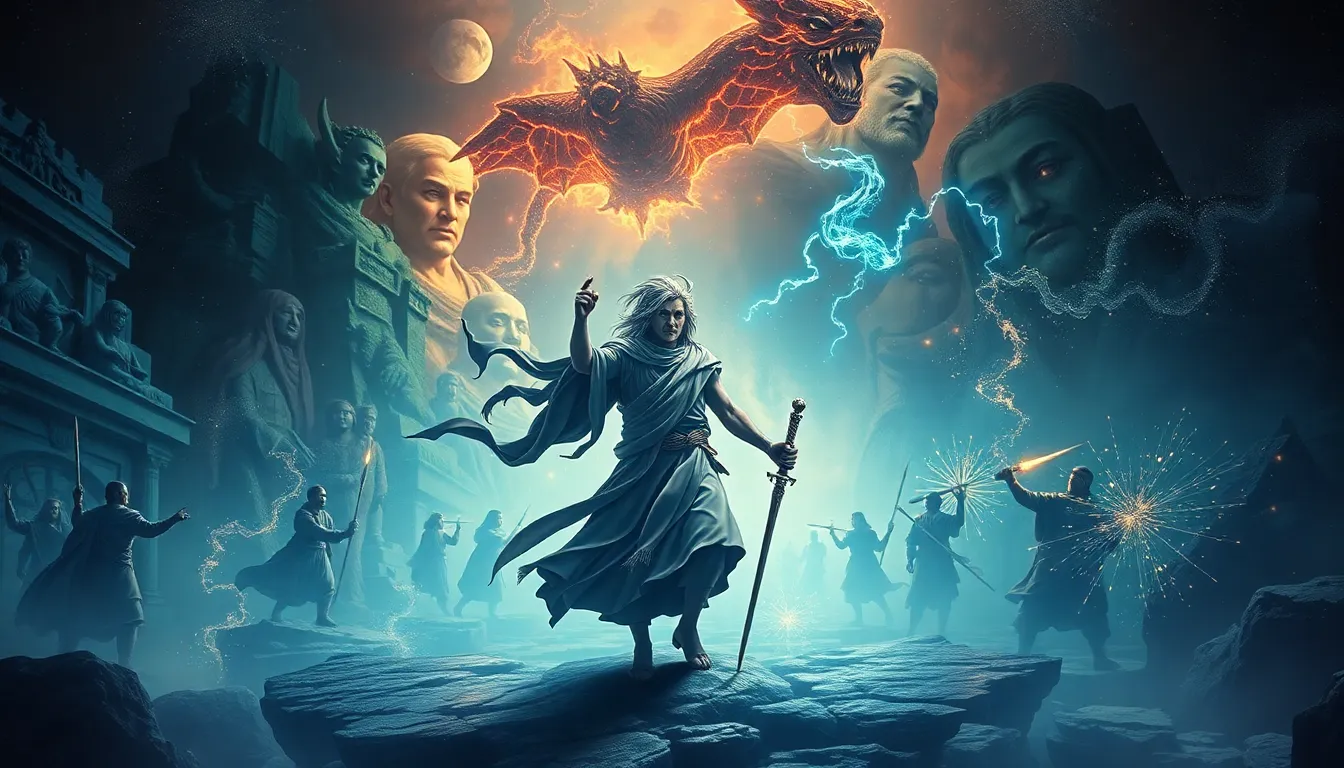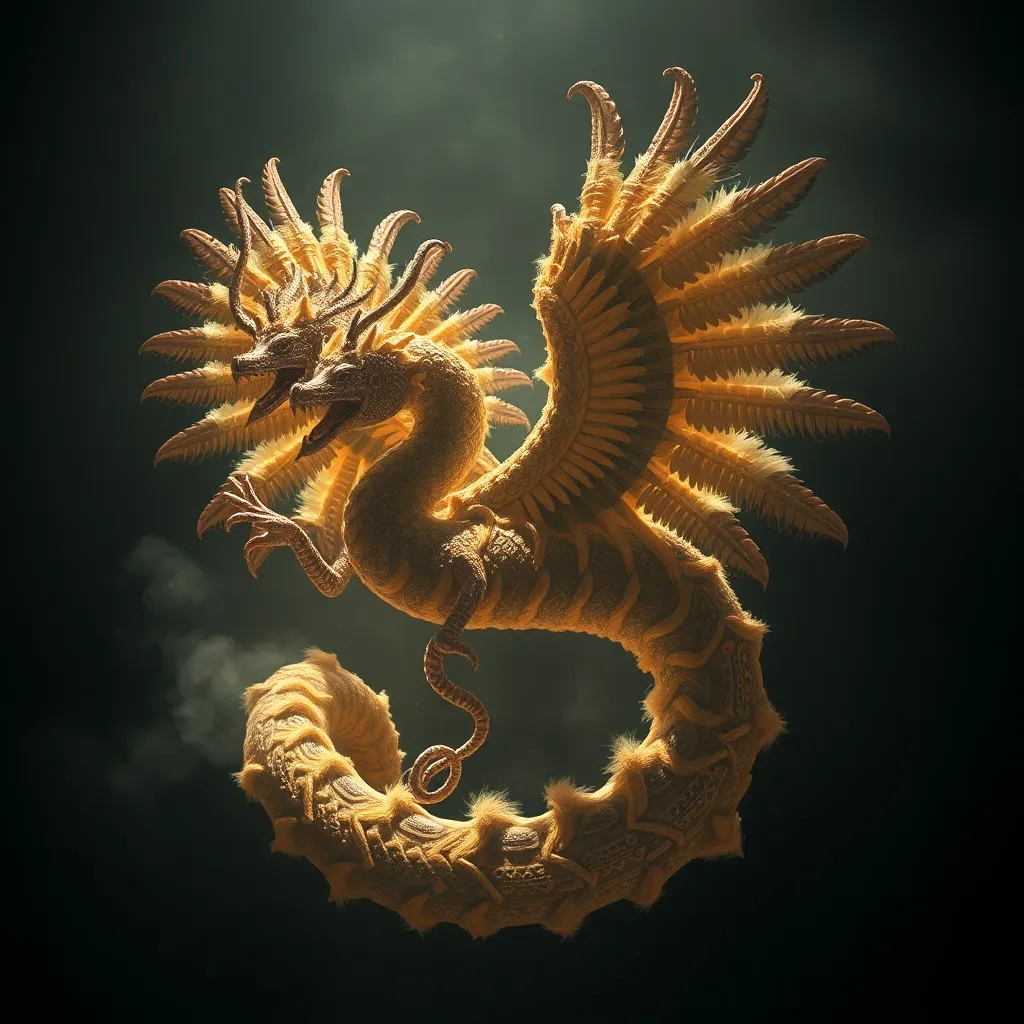The Mythical Journey of Cultural Heroes Through Time
I. Introduction
Cultural heroes are figures that hold significant meaning within a society or culture, embodying ideals, values, and aspirations of the people. These individuals often undertake extraordinary journeys, face significant challenges, and emerge transformed, serving as role models or symbols of hope for their communities.
The importance of cultural heroes in mythology and society lies in their ability to reflect and shape the values and beliefs of a culture, providing a means for individuals to understand their place in the world. This article will explore the concept of heroes in mythology, examine examples from various cultures, and discuss the evolution of these figures through time, leading to a look at their significance in modern society.
II. The Concept of the Hero in Mythology
The characteristics of heroes often transcend cultural boundaries, yet they share common traits that resonate universally:
- Bravery in the face of adversity
- A quest for knowledge or self-discovery
- A willingness to sacrifice for the greater good
- Exceptional skills or powers that set them apart
Joseph Campbell’s concept of the monomyth, or the “hero’s journey,” outlines a narrative structure that many heroes follow, which includes:
- The call to adventure
- The initiation and trials
- The return home transformed
Heroes play a crucial role in shaping cultural identity, serving as embodiments of the society’s ideals and aspirations, and inspiring individuals to strive for greatness.
III. Ancient Civilizations and Their Heroes
Throughout history, ancient civilizations produced legendary heroes that became the foundation of their cultural narratives:
A. Mesopotamian heroes: Gilgamesh and the Epic of Gilgamesh
One of the earliest known literary works, the Epic of Gilgamesh, tells the story of a king who embarks on a quest for immortality, exploring themes of friendship, mortality, and human experience.
B. Greek mythology: Hercules and the Twelve Labors
Hercules, known for his immense strength, undertakes twelve labors as penance, showcasing themes of redemption and perseverance against overwhelming odds.
C. Egyptian mythology: Osiris and the afterlife narrative
Osiris, the god of the afterlife, exemplifies the cycle of death and rebirth, serving as a cultural symbol of resurrection and the hope for eternal life.
IV. Heroes in Eastern Mythology
Eastern cultures also have rich traditions of heroic figures:
A. Indian epics: Rama and the Ramayana
Rama, the central figure in the Ramayana, symbolizes dharma (righteousness) and the ideal man, demonstrating valor and loyalty while overcoming great challenges.
B. Chinese mythology: The Legend of the White Snake
This tale centers on a love story between a human and a snake spirit, exploring themes of love, sacrifice, and the conflict between duty and personal desire.
C. Japanese folklore: Momotaro and the journey of self-discovery
Momotaro, born from a peach, represents bravery and camaraderie as he embarks on a journey to defeat ogres, highlighting the importance of friendship and teamwork.
V. The Medieval Era: Knights and Legends
The medieval period introduced a new archetype of hero characterized by chivalry and honor:
A. The Arthurian legend: King Arthur and the Knights of the Round Table
King Arthur symbolizes the ideal ruler, and his knights represent loyalty and bravery, with stories that emphasize moral integrity and the quest for the Holy Grail.
B. Beowulf: The archetype of the warrior hero
Beowulf’s battles against Grendel and a dragon illustrate the heroic code of bravery, loyalty, and the struggle against evil.
C. The role of chivalry and honor in hero narratives
Chivalric codes defined heroism, emphasizing virtues such as courage, honor, and protection of the weak, influencing the portrayal of heroes in literature.
VI. The Evolution of Heroes in Modern Literature
As society evolved, so did the concept of heroes:
A. The transition from myth to modern storytelling
Modern literature reflects contemporary values and societal issues, adapting the hero archetype to fit new narratives.
B. Heroes in contemporary fiction: Frodo Baggins and Harry Potter
Frodo and Harry represent the ordinary person thrust into extraordinary circumstances, emphasizing themes of friendship, courage, and the fight against evil.
C. The reflection of societal values in modern heroes
Today’s heroes often reflect diversity, resilience, and the complexities of human experience, making them relatable to contemporary audiences.
VII. Cultural Heroes in Popular Media
Film and television have significantly impacted how heroes are portrayed:
A. The impact of film and television on hero narratives
Modern media amplify hero narratives, often reinterpreting classic tales through contemporary lenses.
B. Comic book heroes: The rise of superheroes in American culture
Superheroes such as Superman and Spider-Man have become cultural icons, symbolizing hope, justice, and the battle against oppression.
C. Global perspectives: How cultural heroes are portrayed in different media
Heroes from various cultures are increasingly represented in global media, promoting diversity and cross-cultural understanding.
VIII. The Psychological Significance of Heroes
Heroes fulfill important psychological roles:
A. Carl Jung’s archetypes and the hero’s journey
Jung’s archetypes highlight the hero as a fundamental aspect of the human experience, representing the journey toward self-actualization.
B. The therapeutic role of heroes in personal development
Identifying with heroes can provide individuals with models of behavior, helping them navigate their challenges and aspirations.
C. Heroes as symbols of hope and resilience
In times of crisis, heroes can embody hope, inspiring individuals to persevere and overcome obstacles in their lives.
IX. The Future of Cultural Heroes
The narratives surrounding heroes continue to evolve:
A. Changing narratives: Diversity and representation in hero stories
There is a growing demand for heroes that reflect the diverse experiences and backgrounds of contemporary society.
B. The impact of technology and social media on heroism
Social media allows for new forms of heroism to emerge, where everyday individuals can be celebrated for their contributions and bravery.
C. The potential for new heroes in an evolving cultural landscape
As society changes, new heroes will likely emerge, addressing current issues and reflecting the values of future generations.
X. Conclusion
The enduring legacy of cultural heroes highlights their importance in shaping societal values and individual identity. Understanding and preserving hero narratives allows us to connect with our past while influencing our future. As we continue to explore the concept of heroism, we can appreciate the complex tapestry of stories that inspire hope, resilience, and the pursuit of a better world.




